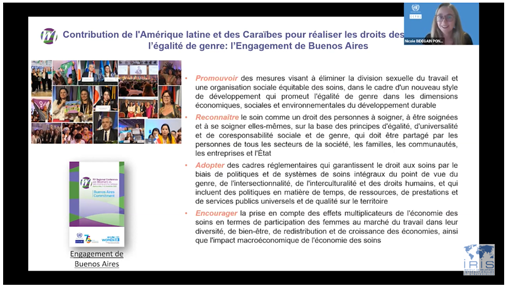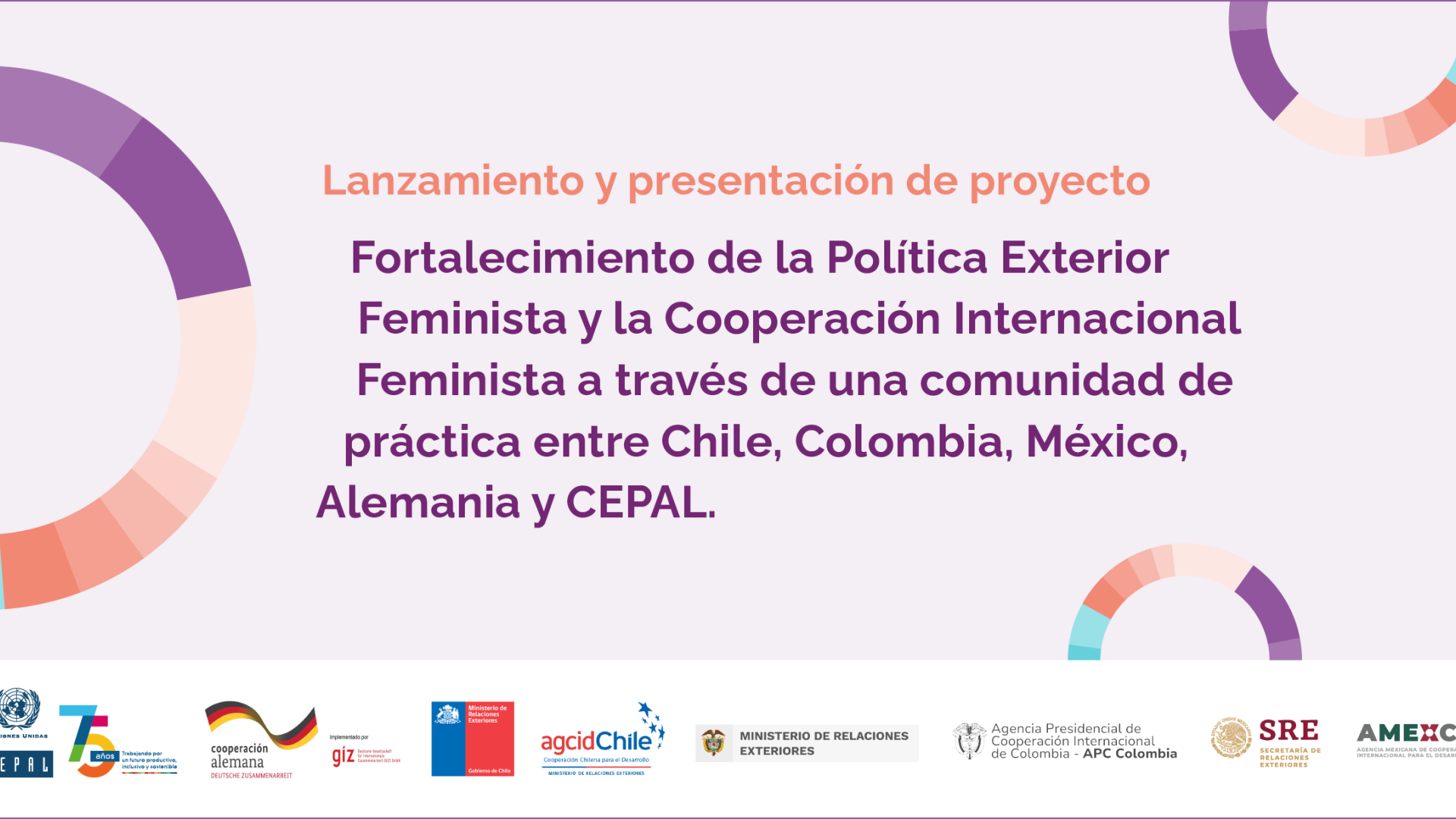Briefing note
The Latin American and Caribbean region is facing cascading and interrelated crises at the international level in the areas of health, care, food, cost of living, as well as challenges caused by the consequences of the coronavirus pandemic (COVID-19) and climate change at the global scale. These crises hold significant implications for the progress made in achieving gender equality and guaranteeing the rights of women, adolescent, and girls.
This is one of the thoughts shared by Nicole Bidegain Ponte, Social Affairs Officer within the ECLAC Gender Affairs Division, during her presentation at the symposium entitled: The role of women in the transformation of Latin American societies. The event, organized by IRIS in partnership with AFD, was held around 2 round tables: “The situation and condition of women in Latin America: between discrimination, violence, gender inequality” and “Emancipatory struggles to ultimately lead to recommendations to transform Latin American societies”. The Ambassador of Mexico in France and representative of the network of Latin American diplomats in France, professors at universities, the representative of the National Institute of Women of Mexico, and other representatives such as the former Minister of Solidarity and Health in France also participated.
Nicole Bidegain Ponte emphasized that, given the persistence of inequality in Latin America and the Caribbean, and its close link to the unsustainability of the dominant development style, ECLAC has been assisting the governments of the region in overcoming the conceptual and public policy obstacles that hinder the promotion of sustainable development based on gender equality and women's autonomy.
In particular, the Social Affairs specialist noted that Latin America and the Caribbean is the only region in the world where, for more than 45 years, states have been gathering at the Regional Conference on Women in Latin America and the Caribbean to discuss and take political commitments to advance towards the guarantee of the full autonomy and human rights of women and girls. The governments of the region have thus included a series of commitments on issues of women's autonomy and equality between women and men, the last of which is the Buenos Aires Commitment, adopted by the governments of the region during the XV Meeting of the Regional Conference on Women in Latin America and the Caribbean.
Nicole Bidegain Ponte highlighted that the Buenos Aires Commitment is of particular importance as a regional tool designed to address the structural causes of gender inequality, and to promote policies to tackle the cascading crises in the short, medium, and long term. In particular, she mentioned that it sets out fundamental regional agreements to achieve a transformative recovery based on equality between women and men and oriented towards the sustainability of both life and the planet.
Furthermore, in the context described by the social affairs specialist of cascading crises, it is essential to face the setbacks in women's rights and to work for a transformative recovery with equality. Therefore, Nicole Bidegain Ponte stressed the importance of governments promoting economic recovery by creating quality jobs for women in strategic sectors. It is also essential to invest in the care economy as a dynamic sector and move towards the care society. Furthermore, as was the priority theme of the Commission on the Status of Women (CSW67) in March of this year, and as was reiterated by governments around the world in its Conclusions, it is fundamental to ensure the breaking of the digital divide between women and men and to engage in an inclusive digital transformation. Ultimately, it is impossible to work towards a transformative recovery without making progress towards a new fiscal compact for gender equality.
For more information:
Access the webcast of the symposium organized by the Institute of International and Strategic Relations (IRIS) and the French Development Agency (AFD), entitled: The role of women in the transformation of Latin American societies on Youtube: https://youtu.be/Xb4aoPmVOWcpour.
See the presentation of Nicole Bidegain Ponte: “Challenges and opportunities for women's autonomy and gender equality in Latin America and the Caribbean”.



